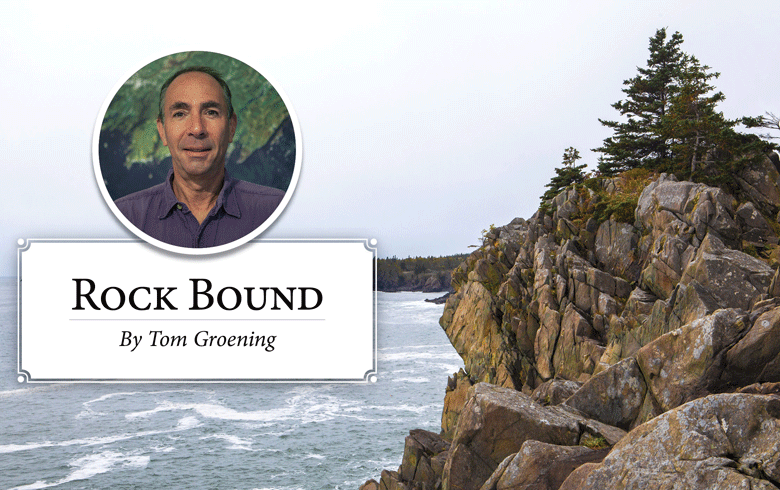The irony wasn’t lost on the audience. Especially this audience.
I attended the Maine Press Association’s fall conference in Bar Harbor in late October—for the first time in over 20 years—and came away charged up and proud.
One of the presentations was by Steve Waldman, co-founder of Report For America, a nonprofit that places and helps pay for reporters across the country. Its mission is “to strengthen our communities and our democracy through local journalism that is truthful, fearless, fair, and smart.”
Since 2004, some 50,000 reporter positions have disappeared, Waldman said.
At one point, Waldman was sharing his ongoing quest for donations and grants, and said one funding source told him, “We’re not going to fund reporters this year. We’re going to focus on democracy.”
With a slight raise of an eyebrow, the irony of that response was clear—because journalism is an essential part of keeping democracy functioning.
Nonprofit journalism—like that of The Working Waterfront—has been an anomaly for most of the last hundred years. But government has taken action to support newspapers, understanding its role.
Waldman said until the 1850s, newspapers received a postal subsidy to allow them to mail their product. Later, political parties paid to distribute them, and then the “penny press” emerged, an affordable way for the masses to get news, with most papers at that time costing 6 cents.
Finally, advertising and reader purchases created the model we know today.
In the late 1990s, the rise of the internet changed everything, and newspapers failed to put a price on the content they shared online.
And advertising for real estate and cars, the staple of many papers, migrated online.
“I think it can go in a horrible direction,” Waldman said of the web, “or it can go in a direction that’s better than ever.”
One example of the horrible is the proliferation of what are known as “pink slime” websites which masquerade as new outlets by offering up the many press releases and calendar items that are readily available, while also including favorable content about a particular candidate or elected official. Waldman asked if there were any operating in Maine, and journalists said there were at least two. Across the country, there are about 1,500, he said.
One of the most compelling arguments Waldman made for the importance of local journalism was that in small cities where papers had disappeared, bond ratings were lowered on those municipalities. In other words, without watchdogs, even bankers see how corruption can creep into government.
Since 2004, some 50,000 reporter positions have disappeared, Waldman said, which is why Report For America exists, though he admitted the 540 reporters it’s funded in the last five years are a drop in the bucket.
In the absence of local news, people turn to national TV news and social media, often skewed toward one political view. From good information, to no information, to bad information is the sad progression, he said.
The Philadelphia Inquirer is now a nonprofit, Waldman said. Here in Maine, we have the Maine Monitor, a nonprofit news site.
In the evening, the press association gave out awards and honored a few long-time journalists by inducting them into its hall of fame. Each had a moving story of dedication to what is a public service, just like being a teacher, nurse, and police officer.
The association’s incoming president, Courtney Spencer, an advertising vice-president for the Portland Press Herald, succinctly captured our mission in her brief remarks:
“We are here tonight because we believe in the power of words. To inform. To illuminate. To provoke curiosity.
“We believe in the power of a photograph. To tap emotion. To show the world as it is. To stimulate a memory.
“We believe in the power of an edit. To clarify. To deepen understanding. To expand perspective.”
This, the December-January issue, is our last of the calendar year. Please consider supporting the kind of community journalism we do by becoming a member of the Island Institute—which gets you a subscription to The Working Waterfront. See: IslandInstitute.org/support.
Tom Groening is editor of The Working Waterfront. He may be reached at tgroening@islandinstitute.org.





